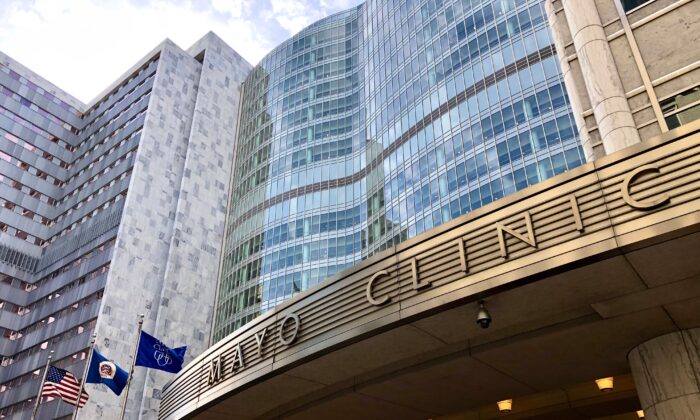 |
| Kerem Yucel/AFP via Getty Images |
Federal officials gave more than $23 billion in COVID-19 aid to the nation’s top 20 nonprofit hospitals, even as a 62 percent increase in their collective net assets led to parallel surges in the institutions’ total profits and revenues during 2018–2021, according to a new report.
Only two of the 20 institutions have repaid the government for the COVID-19 aid they received.
“The 20 largest nonprofit hospitals in the country continued making massive profits while their cumulative net assets soared to $324.3 billion in 2021, up from $200.6 billion in 2018.
“Those hospital systems received congressional COVID bailouts of $23 billion and only two providers partially paid their COVID bailout back,” according to the report compiled by Open The Books, an Illinois-based research nonprofit that compiles and posts spending by all levels of government in the United States.
The two institutions that have partially repaid the government weren’t identified.
The biggest jump among the top 20 was 92 percent by the Mayo Clinic, based in Rochester, Minnesota, whose assets surged to $17.7 billion in 2021 from $9.2 billion in 2018. The Mayo Clinic received $350,000 in federal COVID-19 aid, the lowest amount received among the top 20 institutions.
The Cleveland Clinic Health System, based in Independence, Ohio, saw its assets rise 60 percent, to $15.7 billion from $9.8 billion, while receiving $118 million in federal COVID-19 aid. Intermountain Healthcare, based in Salt Lake City, the 12th-largest of the top 20, enjoyed a 63 percent growth in net assets to $11.6 billion from $7.1 billion; Intermountain received $518 million in aid. --->READ MORE HERE
 |
| File photo: Terry Pluto, cleveland.com |
If you’ve been feeling lonely, depressed, or more anxious than normal the last several years, you have plenty of company. The effects of the pandemic on our collective mental health have outlasted the mandates for masking and social distancing, say experts, and not for the better.
Although the national health emergency declared in 2020 expires on Thursday, for many it has permanently altered parts of our daily lives, including how, when, and how often we interact with others.
Consequently, we are lonelier than ever, according to a recent report by the Surgeon General. One out of every two people reports experiencing loneliness, Dr. Vivek Murthy, U.S. surgeon general said, calling loneliness and isolation “an epidemic.”
Feelings of isolation can have tangible effects on physical health. According to the report, social isolation increases the risk for premature death by 29% -- levels comparable to smoking daily.
Loneliness increases the risk of heart disease by 29% and stroke by 32%. And people with smaller social networks are at increased risk of Type 2 diabetes and of other diabetic complications, including heart attacks and kidney disease. It is associated with an increased risk of dementia, depression. It exaggerates the negative effects of stress.
Simply put, loneliness is bad for our health.
And contrary to what many might think, it’s not just older adults who are struggling. --->READ MORE HEREFollow links below to relevant/related stories and resources:
COVID-19 pandemic killed more than 80K in NY, almost 1.13M across US, CDC tally shows
US Rents On Verge Of First Annual Drop Since Covid Crash Amid Supply Glut
USA TODAY: Coronavirus Updates
WSJ: Coronavirus Live Updates
YAHOO NEWS: Coronavirus Live Updates
NEW YORK POST: Coronavirus The Latest
If you like what you see, please "Like" and/or Follow us on FACEBOOK here, GETTR here, and TWITTER here.

No comments:
Post a Comment